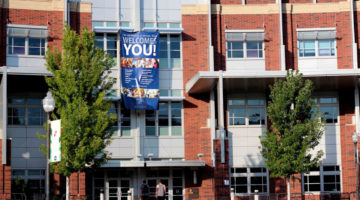Staff Report
Students at the University of Nevada, Reno, could see less federal money this fall as an old Department of Education regulation gets a new spin. That’s according to Melisa Choroszy, UNR’s associate vice president for enrollment services, registrar and commencement, who stopped by last week’s Associated Students of the University of Nevada senate meeting to break the news.
The regulation in question stipulates that federal aid only go toward credits that are applicable to a student’s declared major or minor. In the past, Choroszy says that institutions across the country interpreted this broadly to mean that any credit going toward a degree could count for this federal aid.
“The federal government has not paid a great deal of attention to that,” Choroszy said. “There are specific programs with specific rules. Pell has some specific rules [and] some very specific programs where we do look very carefully, and there are other rules in financial aid that catch you if you’re around too long.”
Institutions were able to do this largely because there was no easy way for anyone, be it the institutions themselves or the Department of Education, to track which credits a student took and whether or not those credits were relevant to their major.
However, with the ubiquitous use of computers and enrollment software in the past decade, it’s become easier for both parties to see what classes students are taking. Specifically, Choroszy noted the existence of certain “buckets” of courses that could either be required courses, elective courses or courses that don’t belong anywhere.
“We are going to be held accountable for dispersing federal aid only for those courses that count toward your degree in one of those buckets,” Choroszy said.
She added that this regulation only applies to federal standards, which mark a full-time student at 12 credit hours per semester. This is lower than the university’s threshold of 15 credit hours, which means that a student could get one class’s worth of leeway when it comes to getting federal aid.
“There is room for exploration; there is room for extra credits for other things that you may want to do,” Choroszy said.
The new rule is going to be phased in, and the administration is looking at implementing new technology to ease the process. However, Choroszy did note that the new rule has forced the school to chart new territory.
“This is a learning experience for all of us,” Choroszy said. “Our goal is to be as supportive as possible for everyone, [but] since this is a new thing that is on the DOE’s audit list, we don’t really have a lot of experience with other foreign institutions who would be in this situation.”
Choroszy concluded her statement before the senate by noting that there will be more questions than answers as the new regulation goes into effect.
The news desk can be reached at jsolis@sagebrush.unr.edu and on Twitter @TheSagebrush.











